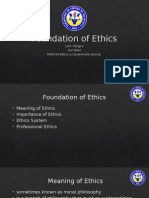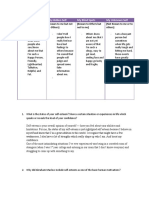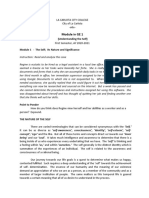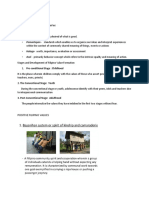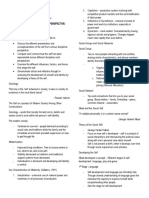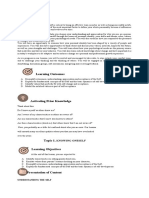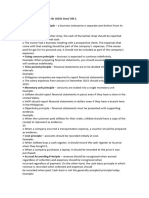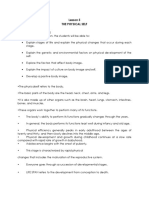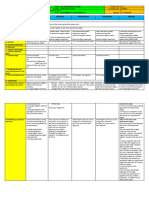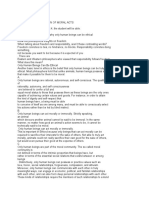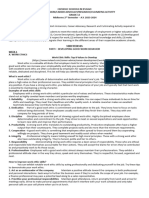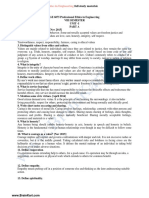0% found this document useful (0 votes)
534 views11 pagesHuman Person and Values Development
The document discusses several topics related to human person development and values formation. It describes the human person as multidimensional, consisting of physical, intellectual, moral and other dimensions. It identifies important realities like self-image, influences from others, and the "being" or motivating force within a person. Values are derived from what is considered desirable and influence behavior. Values education involves guiding the formation of values in learners. Both being and giving values are important to teach, such as honesty, courage, respect and love. Experiences and influences shape how values develop in a person.
Uploaded by
REIANA MITZI M. FernandezCopyright
© © All Rights Reserved
We take content rights seriously. If you suspect this is your content, claim it here.
Available Formats
Download as DOCX, PDF, TXT or read online on Scribd
0% found this document useful (0 votes)
534 views11 pagesHuman Person and Values Development
The document discusses several topics related to human person development and values formation. It describes the human person as multidimensional, consisting of physical, intellectual, moral and other dimensions. It identifies important realities like self-image, influences from others, and the "being" or motivating force within a person. Values are derived from what is considered desirable and influence behavior. Values education involves guiding the formation of values in learners. Both being and giving values are important to teach, such as honesty, courage, respect and love. Experiences and influences shape how values develop in a person.
Uploaded by
REIANA MITZI M. FernandezCopyright
© © All Rights Reserved
We take content rights seriously. If you suspect this is your content, claim it here.
Available Formats
Download as DOCX, PDF, TXT or read online on Scribd
/ 11















